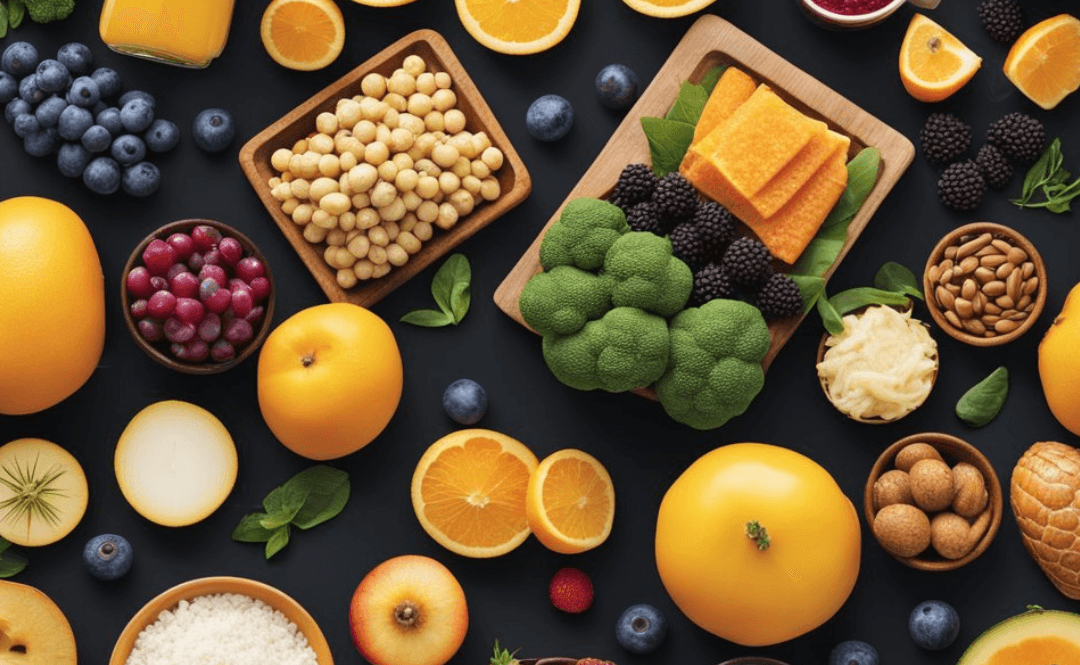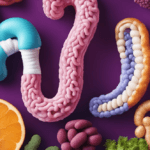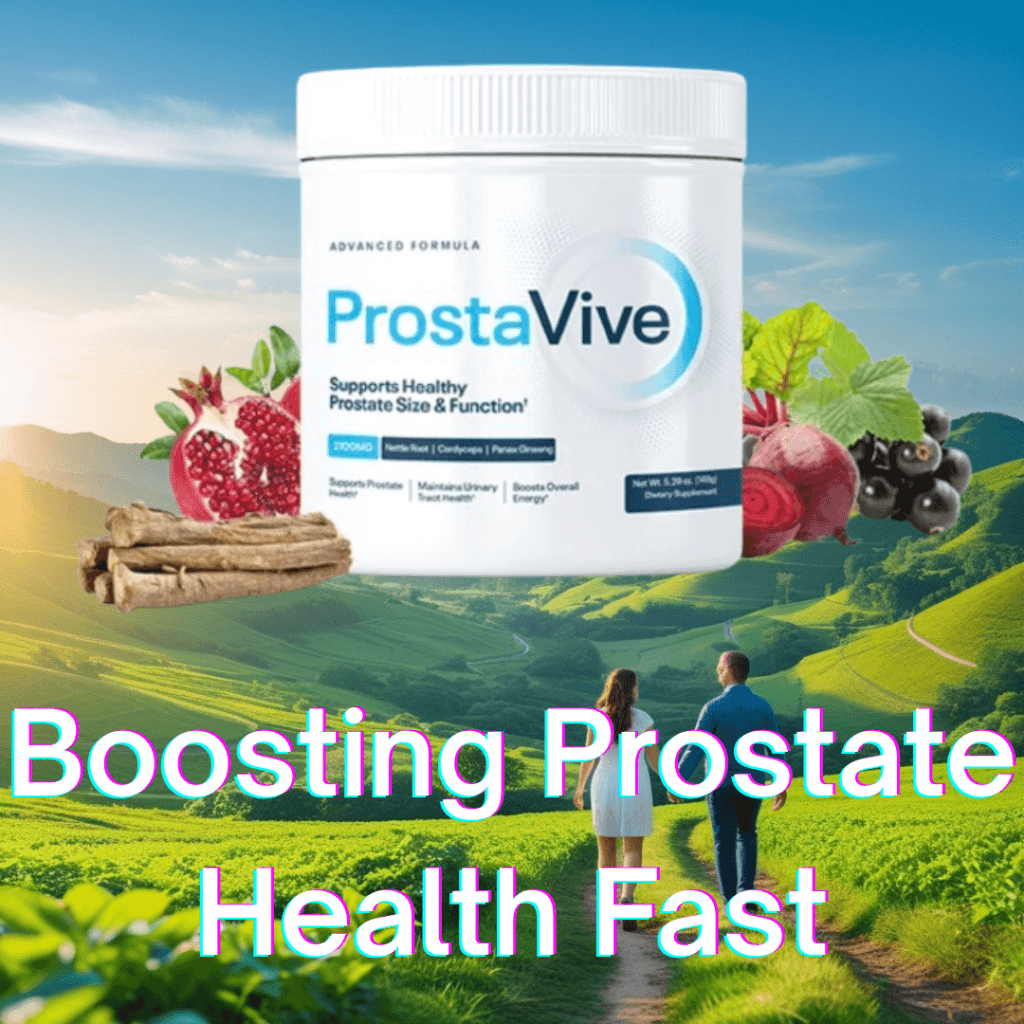Prebiotic foods have the power to transform your gut health and optimize your overall well-being. Forget about boring old probiotics – we’re diving into the world of prebiotic foods and their incredible impact on your body. Get ready to discover the delicious, the nutritious, and the downright gut-boosting wonders of prebiotic foods that will leave you feeling like a million bucks. Buckle up as we take a flavorful journey into the world of gut health and uncover the secrets of prebiotic foods for a happier, healthier you. So, grab a snack and get ready to feast your way to gut glory with the ultimate guide to prebiotic foods for optimal health!
Prebiotics are a type of fiber that feed the beneficial bacteria in your gut, helping to promote a healthy digestive system. In this article, we’ll explore the many benefits of prebiotic foods and how you can incorporate them into your diet.
Overview

Understanding Prebiotics and Their Sources
Before we dive into the benefits of prebiotic foods, it’s important to understand what they are and where to find them. Prebiotics are a type of fiber that cannot be digested by the human body. Instead, they travel to the colon where they are fermented by the gut bacteria. This fermentation process produces short-chain fatty acids, which provide energy for the cells in the colon and help maintain a healthy gut environment.
Key Takeaways
- Prebiotics are a type of fiber that feed the beneficial bacteria in your gut.
- Prebiotics cannot be digested by the human body and are fermented by the gut bacteria.
- The fermentation process produces short-chain fatty acids, which provide energy for the cells in the colon and help maintain a healthy gut environment.
Understanding Prebiotics and Their Sources
Defining Prebiotics
Prebiotics are non-digestible fibers that feed the good bacteria in our gut, promoting their growth and activity. They are different from probiotics, which are live microorganisms that provide health benefits when consumed. Prebiotics are essential for a healthy gut, as they help maintain a balance between good and bad bacteria.
Natural Sources of Prebiotics
Prebiotics are found in a variety of foods, including fruits, vegetables, legumes, nuts, and whole grains. Some of the best sources of prebiotics include garlic, inulin, Jerusalem artichoke, bananas, asparagus, onions, leeks, and chicory root. These foods are high in fiber, which makes them an excellent choice for promoting gut health.
Prebiotic-Rich Foods
Here are some examples of prebiotic-rich foods:
Garlic: This pungent bulb is not only flavorful but also a good source of prebiotics. Garlic contains inulin, which feeds the good bacteria in our gut.
Jerusalem artichoke: Also known as sunchoke, Jerusalem artichoke is a root vegetable that is rich in inulin. It has a slightly sweet, nutty flavor and can be eaten raw or cooked.
Bananas: This popular fruit is not only delicious but also a good source of prebiotics. Bananas contain resistant starch, which feeds the good bacteria in our gut.
Asparagus: This green vegetable is a good source of prebiotics, as it contains inulin. Asparagus can be roasted, grilled, or sautéed and makes a great addition to salads and pasta dishes.
Onions and leeks: These vegetables are members of the allium family and are rich in prebiotics. They can be used in a variety of dishes, including soups, stews, and stir-fries.
Chicory root: This root vegetable is often used as a coffee substitute and is a good source of inulin. Chicory root can also be used in salads and other dishes.
Dandelion greens: These bitter greens are a good source of prebiotics and can be eaten raw or cooked. They are often used in salads and smoothies.
Incorporating prebiotic-rich foods into your diet can help promote a healthy gut and improve overall health.
The Role of Prebiotics in Gut Health
As we know, the gut is home to trillions of microorganisms, which play a crucial role in maintaining our overall health. The balance of good and bad bacteria in the gut is essential for optimal gut health, and prebiotics can help achieve this balance.
Improving Gut Bacteria Balance
Prebiotics are non-digestible fibers that promote the growth of good bacteria in the gut. They serve as food for the beneficial bacteria, allowing them to thrive and multiply. This, in turn, helps to crowd out harmful bacteria and maintain a healthy balance of gut bacteria.
Prebiotics and the Microbiome
The microbiome refers to the community of microorganisms that live in and on our bodies. Prebiotics play a crucial role in maintaining a healthy microbiome by promoting the growth of beneficial bacteria and keeping harmful bacteria in check.
Enhancing Digestive Function
Prebiotics can also enhance digestive function by promoting regular bowel movements and reducing digestive discomfort. When prebiotics are fermented by the gut bacteria, they produce short-chain fatty acids that help to nourish the cells lining the gut and improve overall gut health.
In conclusion, incorporating prebiotic foods into our diet can have a significant impact on our gut health. By promoting the growth of good bacteria, maintaining a healthy microbiome, and enhancing digestive function, prebiotics can help us achieve optimal gut health and overall well-being.
Health Benefits Beyond the Gut

While prebiotic foods are known for their ability to improve gut health, their benefits extend far beyond the digestive system. Here are some of the ways prebiotic foods can benefit our overall health:
Boosting Immune Function
Prebiotic foods contain compounds that can enhance the activity of immune cells, helping to strengthen our body’s defenses against infections and diseases. Research has shown that prebiotic fibers can stimulate the growth of beneficial bacteria in the gut, which in turn can modulate the immune system and reduce inflammation.
Regulating Blood Sugar and Appetite
Prebiotic foods can help regulate blood sugar levels and appetite, making them a valuable tool for managing conditions like diabetes and obesity. Prebiotic fibers slow down the absorption of carbohydrates, which can prevent spikes in blood sugar and insulin levels. They also increase satiety, helping us feel fuller for longer and reducing the likelihood of overeating.
Contributing to Weight Management
In addition to regulating appetite, prebiotic foods can also help with weight management by promoting the growth of beneficial gut bacteria that can improve metabolism and reduce inflammation. Studies have shown that prebiotic fibers can increase the production of short-chain fatty acids, which can help burn fat and reduce the risk of obesity.
Overall, incorporating prebiotic foods into our diet can have a range of health benefits beyond just improving gut health. By boosting our immune function, regulating blood sugar and appetite, and contributing to weight management, prebiotic foods can help us achieve optimal health and wellness.
Synergy Between Prebiotics and Probiotics

When it comes to gut health, prebiotics and probiotics are often mentioned together. Both are essential for maintaining a healthy gut microbiome, but did you know that they also work together synergistically? In this section, we’ll explore the benefits of combining prebiotics with probiotic foods and how you can incorporate them into your daily diet.
Combining Prebiotics with Probiotic Foods
Prebiotics are types of dietary fiber that act as food for the good bacteria in your gut. Probiotics, on the other hand, are live bacteria that provide numerous health benefits when consumed in adequate amounts. When you combine prebiotics with probiotic foods, you create a symbiotic relationship that enhances the benefits of both.
For example, consuming prebiotic-rich foods like bananas, onions, and garlic alongside probiotic-rich foods like yogurt can help increase the number of good bacteria in your gut. This can lead to improved digestion, better nutrient absorption, and a stronger immune system.
Prebiotics and Probiotics in Daily Diet
Incorporating prebiotics and probiotics into your daily diet is easier than you might think. Here are some simple ways to get started:
Add prebiotic-rich foods to your meals: Include foods like asparagus, oats, and apples in your diet to increase your intake of prebiotics.
Eat probiotic-rich foods: Yogurt, kefir, and fermented vegetables like sauerkraut and kimchi are all excellent sources of probiotics.
Try a probiotic supplement: If you’re unable to get enough probiotics from your diet, consider taking a probiotic supplement.
By combining prebiotics with probiotic foods, you can enhance the health benefits of both and support a healthy gut microbiome. Incorporating these foods into your daily diet is a simple and effective way to improve your overall health and well-being.
Potential Risks and Considerations

When it comes to incorporating prebiotic foods into your diet, there are a few potential risks and considerations to keep in mind. In this section, we’ll outline some of the most important factors to be aware of.
Managing Side Effects
While prebiotic foods can be incredibly beneficial for gut health, they can also cause some unwanted side effects. Some people may experience bloating, gas, or constipation when they first start eating prebiotic-rich foods. However, these symptoms usually subside after a few weeks as your gut microbiome adjusts.
To minimize any discomfort, it’s best to start with small amounts of prebiotic foods and gradually increase your intake over time. Additionally, it may be helpful to drink plenty of water and incorporate probiotic-rich foods into your diet as well.
Prebiotics and Digestive Disorders
If you have a digestive disorder such as irritable bowel syndrome (IBS), it’s important to be cautious when incorporating prebiotic foods into your diet. While prebiotics can be beneficial for some people with IBS, they can also exacerbate symptoms for others.
If you have a digestive disorder, it’s best to speak with a healthcare professional before making any significant changes to your diet. They can help you determine whether prebiotic foods are right for you and provide guidance on how to incorporate them safely.
Allergies and Autoimmune Disease
While prebiotic foods are generally safe for most people, those with allergies or autoimmune diseases may need to be cautious. Some prebiotic foods, such as chicory root and Jerusalem artichokes, can cause allergic reactions in some people.
Additionally, some research suggests that prebiotic foods may stimulate the immune system, which could be problematic for those with autoimmune diseases. If you have an allergy or autoimmune disease, it’s best to speak with a healthcare professional before incorporating prebiotic foods into your diet.
Overall, while there are some potential risks and considerations to keep in mind when incorporating prebiotic foods into your diet, the benefits are generally well worth it. By following the tips outlined in this section and working with a healthcare professional as needed, you can safely and effectively improve your gut health.
Incorporating Prebiotics into Your Diet

Adding prebiotic-rich foods to your diet is an easy way to support a healthy gut. Here are some simple dietary changes and recipe ideas to help you incorporate more prebiotics into your meals.
Simple Dietary Changes
- Start your day with a bowl of oatmeal topped with sliced banana and a handful of nuts. Oats are a great source of soluble fiber, while bananas provide resistant starch, both of which are prebiotic.
- Swap out your regular pasta for barley or whole grain pasta. Barley is high in beta-glucan, a type of soluble fiber that acts as a prebiotic. Whole grain pasta is also a good source of fiber.
- Add more fruits and vegetables to your meals. Apples, Jerusalem artichokes, and asparagus are all good sources of prebiotics. Pectin, a type of soluble fiber found in apples, is particularly beneficial for gut health.
- Snack on seeds. Chia seeds, flaxseeds, and pumpkin seeds are all high in fiber and can be added to smoothies, oatmeal, or yogurt.
Recipes and Preparation Tips
- Roasted Jerusalem artichokes: Slice Jerusalem artichokes into thin rounds and toss with olive oil, salt, and pepper. Roast in the oven at 400°F for 20-25 minutes, or until tender and golden brown.
- Apple and walnut salad: Toss together mixed greens, sliced apples, chopped walnuts, and a simple vinaigrette made with olive oil and apple cider vinegar.
- Lentil and barley soup: Saute onions, carrots, and celery in olive oil until soft. Add lentils, barley, vegetable broth, and your favorite herbs and spices. Simmer until the lentils and barley are tender.
- Chia seed pudding: Mix together chia seeds, almond milk, vanilla extract, and a touch of honey. Let sit in the fridge for a few hours or overnight until the chia seeds have absorbed the liquid and formed a pudding-like texture.
Incorporating prebiotic-rich foods into your diet can be delicious and easy. Experiment with different recipes and find what works best for you and your taste buds.
Scientific Research and Expert Insights

Latest Findings on Prebiotic Foods
We have seen a growing body of scientific research supporting the use of prebiotic foods to improve gut health. Prebiotics are non-digestible fibers that help promote the growth of beneficial bacteria in the gut. These beneficial bacteria produce short-chain fatty acids (SCFAs) such as butyrate, acetate, and propionate, which are essential for maintaining gut health.
Recent studies have shown that prebiotic foods can help increase the production of SCFAs in the gut, leading to improved gut health. For example, one study found that consuming prebiotic foods such as inulin and oligofructose led to an increase in butyrate production in the gut.
Guidance from Health Professionals
Registered dietitians and gastroenterologists often recommend prebiotic foods as part of a healthy diet. The International Scientific Association for Probiotics and Prebiotics (ISAPP) also recommends the consumption of prebiotic foods to improve gut health.
To incorporate more prebiotic foods into your diet, consider adding foods such as garlic, onions, leeks, asparagus, bananas, and oats. These foods are rich in prebiotic fibers and can help promote the growth of beneficial bacteria in the gut.
Overall, the latest scientific research and expert insights suggest that prebiotic foods can be an effective way to improve gut health. By incorporating more prebiotic foods into your diet, you can help promote the growth of beneficial bacteria in the gut and improve your overall health.
Frequently Asked Questions

How do prebiotics enhance digestive wellness?
Prebiotics are non-digestible fibers that feed the good bacteria in our gut, helping them to flourish and maintain a healthy balance of microorganisms. By doing so, prebiotics can improve digestion, reduce inflammation, and enhance overall gut health.
Can prebiotics improve skin health, and if so, how?
There is some evidence to suggest that prebiotics may have a positive impact on skin health. By improving gut health, prebiotics may reduce inflammation and promote the growth of beneficial bacteria, which can in turn improve skin conditions such as acne, eczema, and rosacea.
What are the top prebiotic-rich fruits for maintaining gut health?
Some of the best prebiotic-rich fruits include bananas, apples, kiwi, berries, and citrus fruits. These fruits are high in fiber and contain prebiotic compounds such as inulin and pectin.
What are the potential side effects of consuming prebiotics?
While prebiotics are generally safe and well-tolerated, consuming large amounts of prebiotic-rich foods can cause gastrointestinal symptoms such as bloating, gas, and diarrhea. It is important to start with small amounts of prebiotics and gradually increase intake to avoid these side effects.
How do prebiotics and probiotics differ in their impact on the gut microbiome?
While prebiotics feed the good bacteria in our gut, probiotics are live microorganisms that directly add to the population of beneficial bacteria. Both prebiotics and probiotics can have a positive impact on the gut microbiome, but they work in different ways.
What indicators suggest an increased need for prebiotic intake?
Some indicators that suggest an increased need for prebiotic intake include digestive issues such as bloating, gas, and constipation, as well as a weakened immune system and increased inflammation. Additionally, a diet low in fiber and high in processed foods may also indicate a need for more prebiotic-rich foods.
Before we wrap up our prebiotic food adventure, let’s take a moment to appreciate the incredible impact these gut-loving goodies can have on our overall health. From tantalizing taste buds to nourishing our bodies from the inside out, prebiotic foods have proven themselves to be the unsung heroes of gut health. So, as you bid adieu to this prebiotic-packed journey, remember to keep those plates filled with fiber-rich, gut-nourishing delights. Here’s to a happy gut, a healthier you, and a lifetime of prebiotic-powered vitality. Until next time, keep munching on those prebiotic powerhouses and savoring the sweet taste of optimal health!










